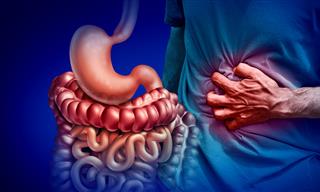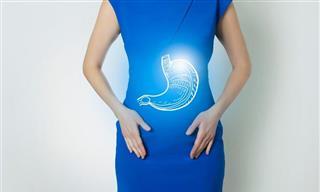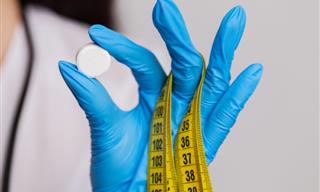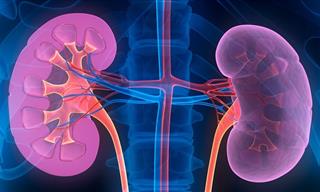
1. Beans
To start, beans are a great source of protein and fiber, making them an excellent addition to any healthy diet.
A type of bean known as the Kidney Bean is named after the organ due to its similar shape. The consumption of these beans can help reduce the risk of kidney disease, especially for individuals with high blood pressure and diabetes. The beans are also rich in fat-free proteins, which can balance blood pressure and provide necessary amino acids. However, those with low kidney function values should exercise caution before consuming large quantities of beans.
2. Peppers
If you are worried about the condition of your kidneys, one of the best foods for you is the simple pepper: red, green or yellow. Peppers have a low amount of potassium as well as concentrations of vitamins A, C and B6 that make them a recommended addition of color, texture and health to your menu. Although potassium is an essential substance for the body, for those suffering from abnormal kidney functions, an excess of potassium is not a desirable situation, so such foods are an important part of a nutritional regime that protects them.

3. Cabbage
Cabbage is rich in chemical compounds and antioxidants from the plant, which together with a high amount of vitamin K, and C and dietary fiber help it maintain normal kidney activity. Cabbage has a low amount of potassium, and various studies indicate its ability to protect our heart and blood vessels from diseases, and not just the kidneys. Also, cabbage is a very common vegetable that can be cooked in many ways, including steaming, baking, and even microwave preparation.
4. Garlic
One of the most well-known superfoods in the world, garlic, does wonders for our entire body and the kidneys are no exception. A high amount of antioxidants and anti-inflammatory substances found in it protect our body, and its ability to lower the cholesterol level in the blood and protect vital systems from cancer, are especially important benefits that protect the kidneys. It is important to note that if you are trying to follow a healthy diet for your kidneys, it is recommended to replace the salt you sprinkle over the food with natural garlic powder, thus avoiding excessive sodium consumption.
5. Apples
A simple apple is a snack or dessert with many health benefits, many of which have a positive effect on our digestive system and blood. Anti-inflammatory properties and the amount of antioxidants found in it help protect the liver as well. While many doctors do not support liver "cleansing" diets that consist only of such foods, eating one apple a day is still a highly recommended action as part of a balanced diet.

6. Onion
The onion is a versatile and popular food that can be easily incorporated into a variety of dishes. It is also a great source of flavonoids, which are organic compounds that act as natural antioxidants and have potent anti-inflammatory and antibacterial properties. These properties make the onion beneficial in fighting a range of illnesses and diseases, from common colds to cancer. Additionally, the onion contains chromium, a trace mineral that helps to regulate the body's metabolism and balance insulin and fat levels in the blood.
7. Cranberries
Cranberries are a type of superfood that can aid in preventing infections and inflammations in the urinary tract and kidneys. These berries make the urine more acidic, which allows them to provide these benefits. Drinking half a glass of natural cranberry juice per day is a great way to introduce more fluids, vitamins, and important nutrients into your body while enjoying a delightful taste. While dried cranberries also contain these essential substances, it is recommended to consume them in liquid form by nutritionists.
8. Olive oil
Olive oil is considered one of the healthiest types of oil in Israel. In addition to its contributions to decreasing the risk of heart disease, many experts believe that its ability to prevent infections and the oleic acid found in it is crucial for maintaining healthy kidneys and preventing oxidation processes that could harm them.

9. Strawberries
Strawberries are a nutritious food that contains various antioxidants and vitamin C. Recent studies conducted in California have shown that they can also have a positive effect on the kidney condition of diabetics by treating kidney damage. However, it's important to note that consuming large amounts of strawberries, like with any food, may cause harm if you have advanced kidney disease. It's best to consult with your doctor before making any significant changes to your diet.
10. Fish
Fish are an excellent source of protein, especially those that have omega-3 fatty acids. To maintain a healthy and smart diet, the American Heart, Diabetes and Kidney Associations all recommend consuming fish two or three times per week. Omega-3 fatty acids are beneficial for the heart and kidneys, as they decrease bad cholesterol (LDL) and increase good cholesterol (HDL). Egg whites are also an important source of protein that contain essential amino acids. Unlike other sources of protein, egg whites are low in phosphorus, which can cause kidney damage if consumed excessively.
11. Egg whites
Egg whites are a noteworthy source of high-quality protein, providing all nine essential amino acids that the human body cannot produce. These amino acids are crucial for tissue repair, hormone production, and immune function. However, unlike other protein sources such as red meat or dairy, egg whites are low in phosphorus. While this mineral is necessary for various bodily functions, excessive consumption can lead to kidney damage, particularly in individuals with chronic kidney disease. Thus, egg whites present a balanced protein option, offering the necessary amino acids without the risk of phosphorus overload. This makes them a particularly valuable dietary inclusion for those needing to manage phosphorus intake.

12. cauliflower
Another representative of the cruciferous vegetable groups on this list, in addition to cabbage, is cauliflower, which is rich in folic acid and vitamin C. In addition to its nutritional value, cauliflower helps the liver to neutralize toxic substances for the body, and thus it is much easier for the kidneys to deal with them as part of the blood circulation. Despite this, it is important to note that eating too much cauliflower can contribute to the formation of kidney stones, so if you suffer from such a diagnosed disease, you should consult your doctor about the recommended dose for you.
An important addition
Just as there are factors that positively affect the function and condition of our kidneys, there are also factors that cause damage. In your medicine cabinet, there are many pills that can be bought without a doctor's prescription, which can cause serious damage to the kidneys. Click here and read more about the common medications that can damage kidney function.
 Go to BabaMail
Go to BabaMail



























































